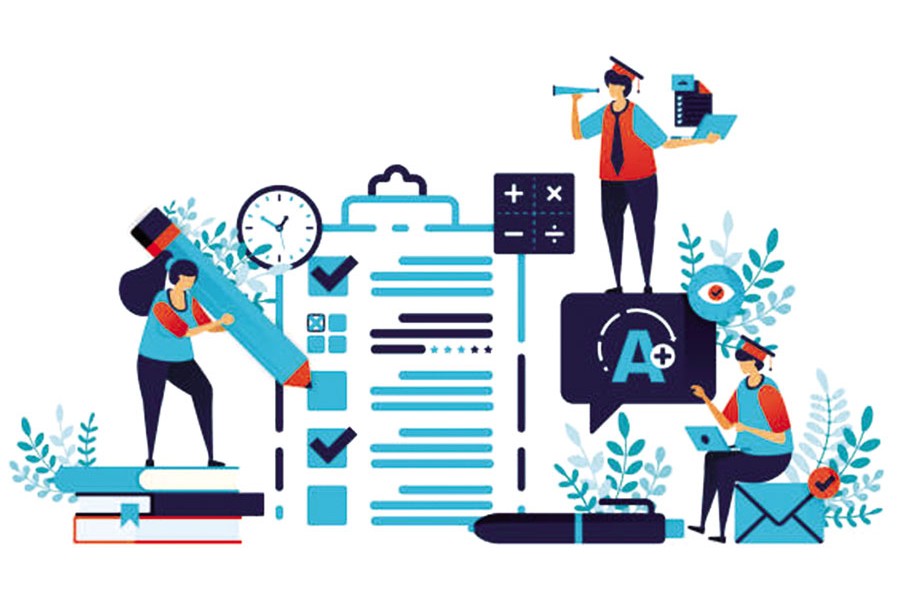After application to the college is successfully done and the applicant is waiting for the response, the process is not done yet. Submission of your application is just the start. After the colleges have received the applications, the applicants will receive mails to the colleges' individual application portal for further information accumulation by a certain deadline. These portals are where applicants can track their applications and get that awaited verdict from the admissions committee. This last issue of 'Applying to universities overseas' series will cover the basics of these application portals.
Organising portal credentials
After the submission of the primary college application via Common Application, OUAC (Ontario Universities' Application Centre), Coalition or other college- application platform, applicants will receive emails from the respective colleges within a number of business days. Sometimes these emails can go to the spam or other folders. So it is best for the candidates to be fully aware of their incoming mails.
MEFA, a renowned admission agency, stated, "Usually, schools email students their applicant portal access instructions along with temporary log-in information. Often these emails go unopened, because students grow weary of college marketing emails and stop opening or even noticing emails from colleges, even the schools to which they've submitted an application."
Upon receiving the mails, applicants will be directed to the said portals and create their own accounts. Typically, applicants apply to a significant number of colleges, as a result they will have to create that many portal accounts. Keeping track of so much log-in information can be cumbersome. So, it is advised to create a Microsoft Excel or Google Sheets file and organise them. These will save them the trouble of looking for the necessary usernames and passwords. Each portal will have its own required documents and deadlines. Incorporating all those information into the Excel or Google Sheets will make it easier for the applicants.
Written submissions
The main purpose of the application is to make the entire procedure more personalised. In addition to the questions asked in the general college application platforms, the colleges want to know more about the candidates so that they can make a better assessment. Hence, there will be written supplements for the applicants to submit. Most of the colleges take this opportunity to get more personal and ask questions pertaining to the applicants' goals and how the colleges fit in them. So, it is important to carefully answer them. In most cases, there will not be a chance to correct the answers after submitting.
The required submissions for scholarships and financial aid can also be accessed here. These questions are one of the core criteria determining the acceptance of the desired financial aid. Colleges tend to change the scholarship and financial aid questions each year to maintain transparency. However, the main theme of the questions typically stays the same.
More documents
Foreign application process requires documents ranging from an applicant's academics to the passport information for a visa. The portals will help the colleges acquire more documents to secure the applicants' position at their colleges.
First comes the English proficiency and standardised test scores. The portals are where applicants disclose whether they have met the minimum IELTS/TOEFL/Duolingo scores for that college. However, due to the Covid-19 pandemic, most colleges do not require students to submit their standardised scores.
The notice from Harvard College reads, "Due to the continuing Covid-19 pandemic, Harvard College is extending our standardised testing policy through the 2021-2022 application cycle. We will allow students to apply for admission without requiring ACT or SAT test results."
In addition to academic documentations, US colleges will ask for more documentation to issue I-20 forms. I-20 form denotes the "Certificate of Eligibility for Nonimmigrant Student Status." This form will indicate that an applicant has been admitted to a full-time study programme and has demonstrated sufficient financial resources to stay in the United States. This form will be absolutely crucial while applying for a student visa in the US.
According to New York English Academy, "The I-20 leads to an entrance admission provided by educational institutions, granted by the US government. It is filled in with the subject of study and the duration of the course. An I-20 is the precondition to apply for a student visa to the US Embassy."
In order to issue the said form, the college asks for the applicant's household income, bank statements of the guardian or sponsor(s). All these documentations will make the college certain of the applicants' capability of affording the college education allowing them to issue the I-20.
Most application portals contain a required document checklist in their dashboards. Applicants can access their dashboards to see what documents they are yet to submit before the deadline.
Tracking the application
After the entire checklists for documents, written submissions and so on are done, applicants can now track their applications via their portal dashboards. There will be instances when a submitted document may not be the one the college is looking for and the applicant has to submit a new one promptly before the deadline. Such new development can only be tracked via the admission portal.
After everything is done and dusted prior to the deadline, all an applicant can do is wait and check their application status at the portals everyday for any new development. This is the place where the college will send their admission decisions and hopefully, that coveted acceptance letter.
Starting from selecting the colleges you want to apply to tracking your completed applications in the admission portals, there are many factors that can go wrong. Hopefully, the entire series has shed a holistic light on this entire process so that when you track your application for the very last time, you can open a file that starts with the word you will hear a lot in the coming days, "Congratulations."
The writer is a BBA student at IBA (DU).
[email protected]


